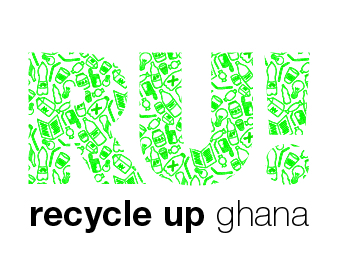The day started with an exercise to keep the team focused and was followed immediately by a video presentation conducted by Team Leader Prosper dubbed “Where does plastics come from?” Fossil fuels → organic matter (mainly carbon) → process of polymerization → plastics according to Mr. Awuni is how plastics are born. He also made mention of thermosets and thermoplastics as types of plastics. Yidana, one of the participants made a great contribution to ‘reasons why PVC (thermoplastics) is used for transporting water’. He said PVC contains chlorine which attacks microorganisms in the water during distribution.
Mrs. Anastasia Blankson, an external partner, handled the second session on “Solution to Environmental Pollution”. She started with a brief history of the Environmental Protection Agency (EPA), through to waste management in Ghana, types and sources of pollution and to solutions to environmental pollution. She mentioned the 3Rs, composting, usage of sewage treatment plants, incineration, implementing by-laws, among others as possible ways of preventing the occurrence of pollution. She advised lastly that the youth of Ghana form youth groups, make sanitation their priority and be good examples to the elderly to help save the environment. The session ended with a group work on how and where to refuse, reduce, reuse and recycle as part of waste management strategies.
Entrepreneurship in waste Management
The 3rd session was handled by Mr. Robert Bruce who said that an entrepreneur is a person who identifies a problem, brings out innovative ways to solve it and puts in measures to sustain the idea. Being disciplined, determined, research-bound, creative, persevere and open-minded are all traits of an entrepreneur. He also said Ghana needs entrepreneurs because among others, they solve problems and create jobs.
Social Entrepreneurship
“The key thing needed in social entrepreneurship is to have the passion to make a change, and not profit”, according to Mr. Amos Wussah from ‘Farmerline’. He summarized the ways of setting up a social enterprise into; identifying a problem, proposing a solution, finding out existing alternatives, customers and media of distribution (if products will be produced). He received a branded ‘Recycle Up Ghana’ T-Shirt after the session.
Waste Management in Kumasi, Ghana
Mr. John Donkor, the deputy director of the waste management department of Kumasi Metropolitan Assembly (KMA) mentioned that, Kumasi generates about 1500 tonnes of waste per day, though 1400 is collected. He mentioned different ways of managing waste as well as challenges faced. He ended with the importance of recycling as a way of saving resources and power.






































Packed but educative session. So happy to be part of the camp. Big ups Technology Without Borders!